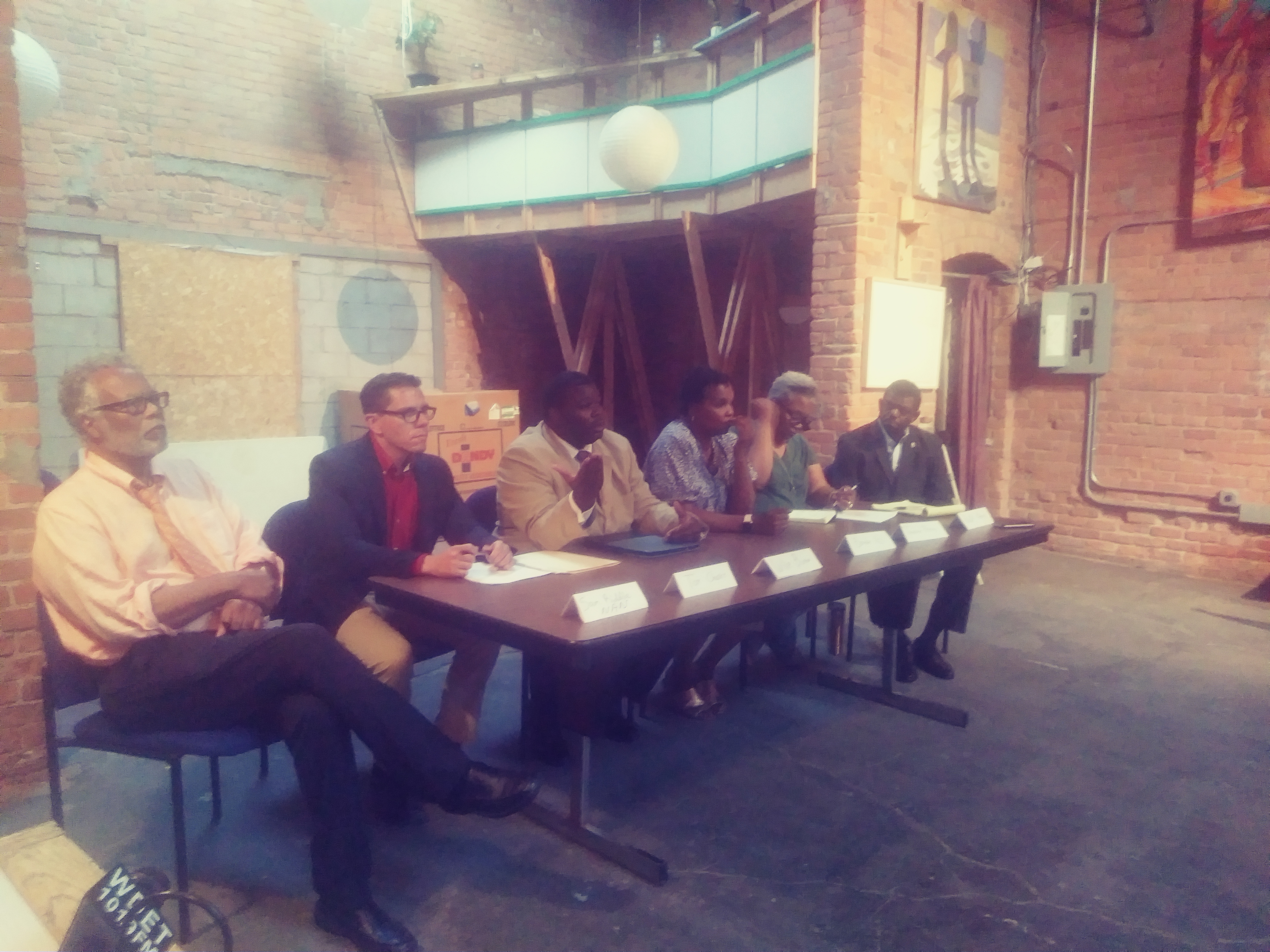Activists Call For Ballot Initiative On Police Use of Facial Recognition Tech
The Detroit Board of Police Commissioners released a revised proposal to assuage privacy advocates’ concerns, but a recent panel demonstrated the distance between officials and concerned activists.

A coalition of Detroit civil rights organizations blasted Detroit Police over the proposed use of facial recognition technology, citing potential for racial profiling and security protocols to protect data, during a public meeting held yesterday.
The debate over facial recognition technology has become a focal point of tension between Detroit Police and community activists. The department purchased the software in 2017 and gained approval for use by City Council in the same year.
But the Board of Police Commissioners which supervises the department still needs to set policy surrounding the technology. Activists held a public town hall calling for a ban on the departments use of facial recognition software. The coalition is pushing for a ballot initiative to vote on whether or not the department should use the software.
“This is flawed technology. But it’s so flawed that this it will reverberate for generations if we allow this to happen. You don’t know where this data will be stored, you don’t know how many companies will have access.” – Brenda Hill, community activist
Rushed approval, privacy concerns

Commissioner Willie Burton condemned the police department for implementing the controversial software without the public’s knowledge. Burton was arrested at a Commissioners’ meeting earlier this summer for disorderly conduct. The charges were later dropped.
“The Detroit Police Department was wrong for using this program for securing funding without notifying the public,” said Burton. “Where does this data go from here? What happens when it misidentifies a person of color who doesn’t have the resources for a good legal defense?”
A major concern panelists discussed was how prone the technology is to misidentify a person of interest. It’s been reported that recent improvements to the software’s algorithms still produce higher rates of mismatches for black women than white women.
Brenda Hill, a community activist, questioned how susceptible the data collected from facial recognition technology was to hacking or a data breach and its future impact.
“This is flawed technology,” Hill said. “But it’s so flawed that this it will reverberate for generations if we allow this to happen. You don’t know where this data will be stored, you don’t know how many companies will have access.”
“We cannot and we will not ever arrest some solely on a facial recognition match” – Detroit Police Chief James Craig
New proposal and legislative wrangling
The board has stalled on voting on a proposed policy on the department’s use of facial recognition technology, but are releasing a revised proposal meant to address community concerns.
This new revision shows proposed recommendations from the board that request clarification on the technology’s use, require trainings for supervisors, incorporate measures to prevent data breaches, amongst others and updates to the current DPD directive.
Police Chief James Craig said that the technology will only be used to produce leads for criminal investigations during a Police Commissioners’ meeting this summer.
“We cannot and we will not ever arrest some solely on a facial recognition match,” said Craig. “There has to be other issues in the investigative work that corroborate that this image that we believe is a suspect is based on a number of factors, and it is never used in surveillance mode.”
Other cities, including San Francisco, have already banned the technology’s use.
In Lansing, local legislators introduced bills earlier this year to regulate the use of facial recognition technology by law enforcement agencies across the state. House Bill No. 4810 proposes a five-year moratorium on the technology’s use. Senate Bill 342 proposes a full ban to the use of facial recognition technology. Both bills have been referred to committee but have not been scheduled for a vote.
Public officials are currently split over support of the department’s use of facial recognition technology. Mayor Mike Duggan supports the use of facial recognition technology for investigative purposes along with police chief Craig. Police Board Co-Chair Lisa Carter in July released a statement against the use of facial recognition technology.
